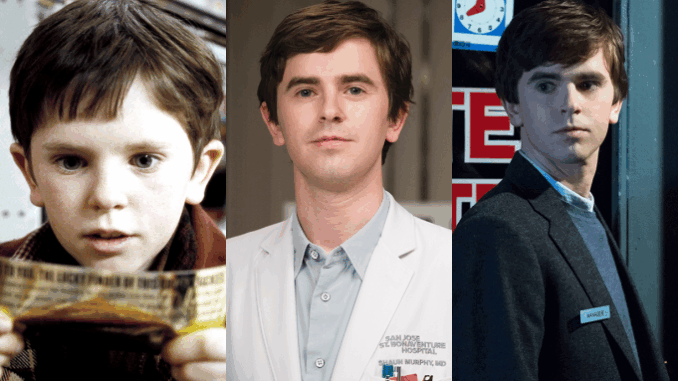
When The Good Doctor first aired, few expected a young British actor with a boyish face and quiet voice to redefine what a TV medical drama could be. Yet seven seasons later, Freddie Highmore’s portrayal of Dr. Shaun Murphy — a surgeon on the autism spectrum — remains one of television’s most layered and emotionally honest performances.
Highmore didn’t play Shaun as a stereotype or a symbol. He built him like a real person — awkward, brilliant, and utterly human. The genius of his acting lies not in imitation, but in restraint. Every twitch of the hand, every pause before a sentence, feels calibrated yet spontaneous, as if Shaun is forever translating a chaotic world into logic he can live with.
Behind that precision is years of study. Highmore famously immersed himself in the psychology of autism, consulting experts and watching hours of interviews to understand not just how autistic individuals communicate, but why. What emerged was a performance that never patronizes. Shaun doesn’t need to be “fixed” — he needs to be understood. That quiet assertion became the moral center of the show.
Across the seasons, we’ve watched Shaun evolve — not by shedding his traits, but by growing within them. When he struggles with empathy, it’s not because he lacks it, but because he experiences it differently. When he finds love, it’s tentative yet profound, a reminder that emotional intelligence takes many forms. Highmore captures those shades with surgical precision. He doesn’t make Shaun “normal”; he makes him authentic.
What’s remarkable is how Highmore balances intellect and vulnerability. In one scene, he’s dissecting a complex cardiac anomaly with robotic clarity; in the next, he’s falling apart because a patient’s death doesn’t fit his sense of justice. Those moments of conflict — between logic and feeling — are where Highmore shines. He gives Shaun’s mind the rigor of a scientist and his heart the fragility of a child still learning the world’s rules.
It’s easy to forget that Highmore also serves as a producer and occasional writer on the series. His fingerprints are on more than just the character — they shape the show’s tone: empathetic, hopeful, yet unflinchingly real. Few actors today bridge performance and creative control so seamlessly, especially in network television.
Part of what makes The Good Doctor endure isn’t just the medical drama, but the moral one. Each episode poses a question: how do you heal when emotion and logic collide? Through Shaun, Highmore turns that question inward. His performance forces viewers to confront their own biases about communication, love, and competence. He reminds us that intelligence isn’t only measured in IQ points, but in compassion and persistence.
As The Good Doctor nears its conclusion, Shaun Murphy stands as one of TV’s most complex creations — a character who changed the way audiences see both medicine and neurodiversity. And at the heart of that transformation is Freddie Highmore, the quiet craftsman who built not just a doctor, but a mirror — reflecting how extraordinary the human mind can be when it refuses to fit a single definition.
